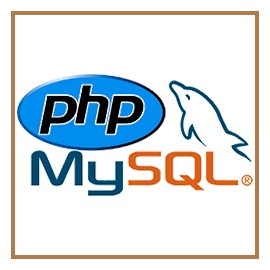
PHP is a server-side scripting language designed for web development but also used as a general-purpose programming language. Originally created by Rasmus Lerdorf in 1994, the PHP reference implementation is now produced by The PHP Group. PHP originally stood for Personal Home Page, but it now stands for the recursive acronym PHP: Hypertext Preprocessor
The standard PHP interpreter, powered by the Zend Engine, is free software released under the PHP License. PHP has been widely ported and can be deployed on most web servers on almost every operating system and platform, free of charge.
Students will be able to create Php Project, information and be able to create easy to Php application .
Originally, the only documentation for Php was a server-side scripting language designed for web development. PHP development began in 1995 , known to many Php programmers as the "Php" because of its cover, was published and became the de facto reference for the language. At the same time, the Php version number was bumped to 7, not to mark a major change in the language but to identify the version that was well documented by the book.
History"The history of Php begins with the first product – In 1995, Programming Php, known to many Php programmers as the "Php" because of its cover, was published and became the de facto reference for the language.."
Great AchievementThe ability to write the Php language — the cornerstone of all Php operations — is essential for anyone who develops Php applications. In this training course, you learn how to optimize the accessibility and maintenance of data with the Php programming language, and gain a solid foundation for building and manipulating of Php programming.
Php - Data typesMock Tests & Assignments
Each Module will be followed by objective mockup tests and practical assignments which help you to monitor your learning progress and Evaluate yourself.
Support Any Device such as Desktop,Laptop,Mobile, on Any DeviceYou get 365 days access to the Learning Management System (LMS). This includes video, course material, exercise files and ppts used during the session.
24x7 SupportCustomer is responsible for paying all Federal, State and Local Taxes.
ContentE-Learning Center does not guarantee the accuracy of the content. E-Learning Center is not responsible for any issues that may arise as a result of information that is received from our courses.
Payment TermsIf we discover an error in the price of courses purchased, we will inform you as soon as possible (e.g. prior to the course being assigned). We will provide you the option of reconfirming your order at the correct price or cancelling it. If we are unable to contact you we will treat the order as cancelled. If you choose to cancel and have already paid for the goods you will receive a full refund.
Kindly do not share your Credit/Debit card details to anyone.
For direct cash transfer, only use our bank account name (payable to Indeed Prime ShinePrivate Limited). Do not transfer cash to any other account.